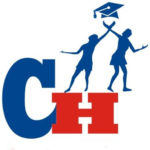CHALLENGING HEIGHTS URGES GOVERNMENT TO ADDRESS THE CURRENT CRISIS IN GHANA’S EDUCATIONAL SECTOR
To the press
September 7, 2021
On the occasion of the International Literacy Day, which falls on September 8, Challenging Heights wishes to call on the government of Ghana to address the crisis in our educational system, especially the crisis in the basic schools across the country.
The capitation grants, which is supposed to be used to run the day-to-day affairs of public basic schools in Ghana, has been in arrears since 2019, and it was only in May this year that the first quarter of the 2019 grants were released. Which means the government owes basic schools 10 quarters in capitation grant arrears, running into an estimated 300million Ghana Cedis.
Schools are in crisis, with available evidence suggesting that some head teachers are using their already insufficient salaries, to run the schools. This situation is not only a threat to quality basic education in the country, but also a threat to the sustainability of our schools.
The capitation grant was introduced in 2005, by the government of Ghana, to enable public basic schools run a fee-free schools, to enable vulnerable and underserved children attend school without paying fees. Currently the government pays GHC10 per child per term, to the public basic schools. This grants are used by the schools for the purposes of providing in-service training for teachers, payment of stationeries, and for the procurement of teaching and learning materials, among several others.
Concurrent with the capitation grant crisis is the lack of supply of textbooks to facilitate the implementation of the new educational reform program, the Standard Based Curriculum (SBC).
In the year 2019, the government of Ghana introduced the Standard Based Curriculum (SBC) in basic schools, to make the educational system more participatory, and to facilitate creativity. Teachers were trained and given Resource Packs, to kick start the reform.
However, two years after the SBC was introduced, no official textbooks have been printed or supplied for the children in whose interest the reform was introduced. If this situation is not rectified, the quality education we are all seeking would be compromised.
September 8 was proclaimed International Literacy Day by UNESCO in 1966 to remind the international community of the importance of literacy for individuals, and the need for an intensified effort towards more literate societies.
Without adequate funding of public schools, Ghana might miss out on the targets set out in the Sustainable Development Goals on education. Challenging Heights is therefore worried that adequate attention is not being paid to the timely release of the Capitation Grant, and its attendant supply of textbooks.
James Kofi Annan
(President)
